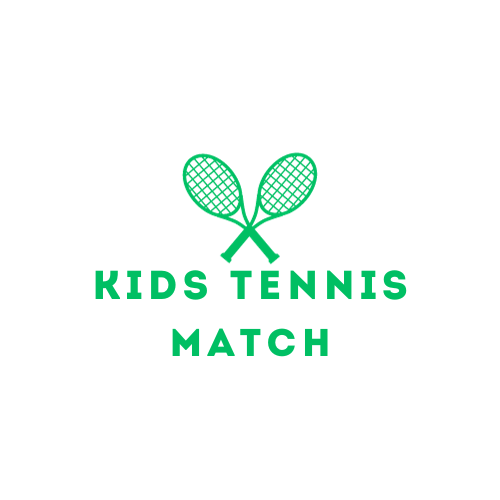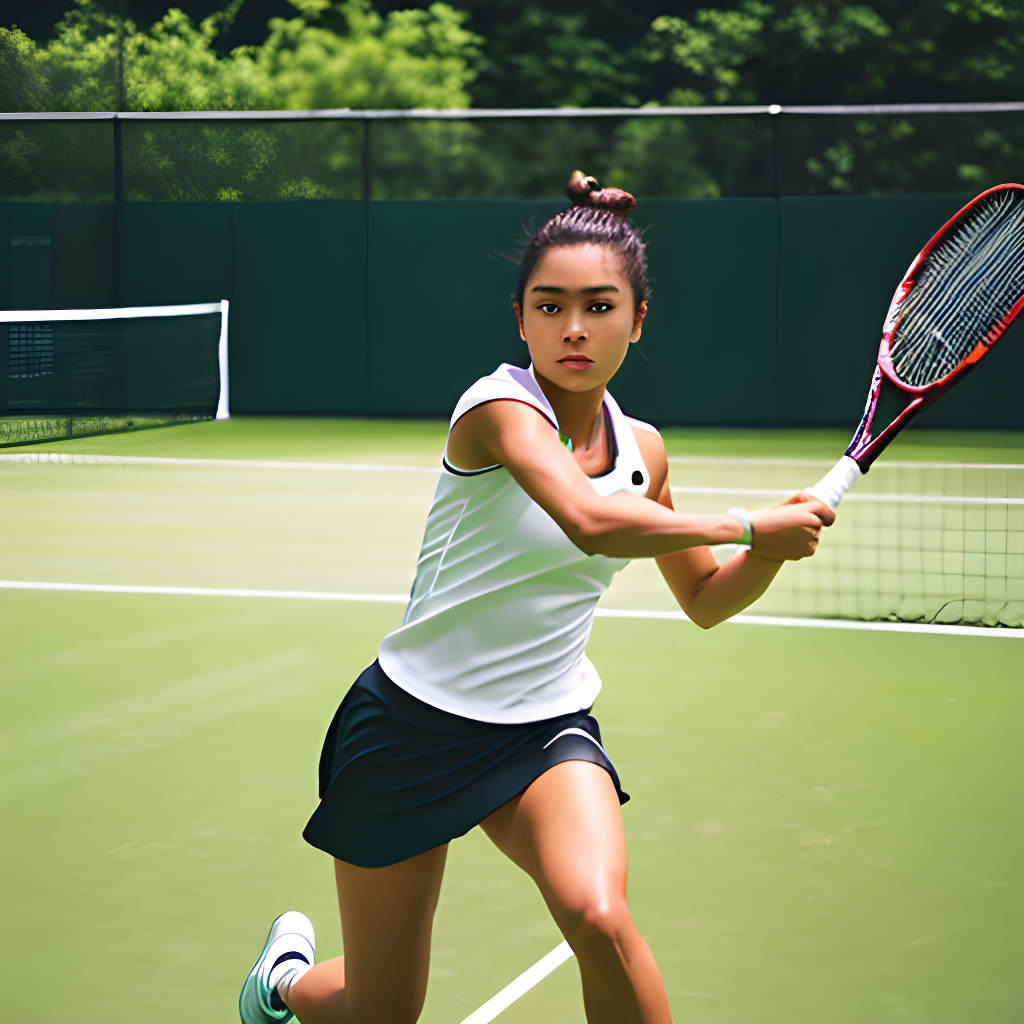Deciding whether your child should take group tennis lessons or private lessons can be a tough choice. Both options offer unique benefits and considerations that need to be carefully weighed. In group lessons, your child can socialize with other players, learn teamwork, and develop valuable interpersonal skills. On the other hand, private lessons provide one-on-one attention, personalized instruction, and the opportunity to focus on specific areas of improvement. To make an informed decision, it’s important to consider your child’s personality, learning style, and goals in the context of these two options.
Age and Skill Level
Consider the age and skill level of your child
When deciding between group tennis lessons and private lessons for your child, it is essential to consider their age and current skill level. Younger children, especially those who are just starting to learn tennis, may benefit more from group lessons. Group lessons for younger children typically focus on introducing the basics and building a solid foundation of tennis skills in a fun and interactive setting.
On the other hand, older children or those with advanced skills might find private lessons more suitable. Private lessons offer the opportunity for more focused and personalized instruction, allowing the instructor to tailor the lessons to the child’s specific needs and goals. This individual attention enables older children to refine and enhance their skills, addressing any weaknesses and pushing their abilities to the next level.
Cost and Budget
Evaluate the cost of group lessons versus private lessons
Another crucial factor to consider when deciding between group tennis lessons and private lessons is the cost and its alignment with your budget. Group lessons tend to be more affordable compared to private lessons. Since the cost is divided among multiple participants, the individual cost per lesson is lower. This affordability makes group lessons an excellent option for families looking to introduce their children to tennis without breaking the bank.
On the other hand, private lessons may require a larger budget. Due to the one-on-one nature of private lessons, the cost is typically higher. However, if your child is more serious about tennis and wishes to develop their skills extensively, the additional investment in private lessons may be worthwhile.
Individual Attention
Assess the level of individual attention your child requires
The amount of individual attention your child requires is a crucial factor in determining the right type of tennis lessons. Private lessons offer one-on-one instruction and personalized attention from the coach. This individual attention allows the coach to closely analyze your child’s technique, identify areas for improvement, and provide specific feedback and guidance. If your child requires detailed instruction and personalized support in their tennis journey, private lessons are the way to go.
On the other hand, group lessons have a larger student-to-instructor ratio, resulting in less individual attention. While the coach strives to provide group-wide instruction, it may be challenging to address each child’s specific needs during group lessons. However, if your child is at the beginning stages of learning tennis and doesn’t require as much individual attention, group lessons can still be a beneficial and enjoyable experience.
Learning Pace
Determine your child’s preferred learning pace
Each child has a unique preferred learning pace. For some children, following a standardized curriculum and pace, as commonly found in group lessons, works well. Group lessons often have a set structure and progression, ensuring that all participants learn and progress together. This standardized approach can be suitable for children who thrive in a structured learning environment and enjoy progressing alongside their peers.
However, if your child has a preferred learning pace that differs from the standardized curriculum or if they have specific areas they want to focus on, private lessons offer a more tailored learning experience. Private lessons can adapt to the individual’s pace, allowing the child to learn at their own speed and addressing specific areas of interest or concern.
Social Interaction and Motivation
Consider the importance of social interaction for your child
Social interaction is another aspect to consider when deciding between group tennis lessons and private lessons for your child. Group lessons provide an opportunity for your child to interact with peers who share a similar interest in tennis. The group setting encourages socialization, teamwork, and the potential to build friendships. This social aspect can enhance the overall tennis experience for children, making it a fun and engaging activity.
On the other hand, private lessons may lack social interaction. Since private lessons focus solely on the individual and their coach, there is less opportunity for socializing with peers during the lesson itself. However, private lessons can offer intense motivation and focus. The one-on-one setting allows the coach to provide undivided attention and push the child’s boundaries, which can be highly motivating for those seeking to excel in their tennis skills.
Competition and Teamwork
Assess your child’s interest in competition and teamwork
Different children have varying interests when it comes to competition and teamwork. Group lessons often involve friendly competition and teamwork exercises. These activities can be a great way for children to learn about healthy competition, develop sportsmanship, and work together as a team. If your child enjoys the excitement of competing against peers and thrives in a team environment, group lessons can be an excellent choice.
On the other hand, private lessons tend to focus more on individual technique and skill development. While competition and teamwork may not be as prevalent during private lessons, the one-on-one attention allows the coach to tailor the lesson to the child’s specific needs and goals. Private lessons are particularly beneficial for children who are more self-driven and motivated to improve their individual skills without the distractions of competition or teamwork exercises.
Available Facilities and Resources
Evaluate the facilities and resources available in your area
The facilities and resources available in your area can also play a role in deciding between group tennis lessons and private lessons. Group lessons often have access to better facilities and equipment, thanks to the collective resources of the group. These resources can include well-maintained tennis courts, quality tennis rackets, and other necessary equipment. The availability of such facilities and resources can contribute to a more enriched and enjoyable group lesson experience.
On the other hand, private lessons may be limited by the resources available to the instructor. Depending on the instructor’s access to facilities and equipment, private lessons may take place in indoor or outdoor locations, which may vary in quality. It is essential to discuss and assess the facilities and resources available with potential coaches or instructors to ensure they meet your expectations and requirements.
Scheduling and Flexibility
Consider your child’s schedule and the flexibility required
Another aspect to consider when choosing between group tennis lessons and private lessons is your child’s schedule and the flexibility required. Group lessons often have fixed schedules and set class times. This can be beneficial for families who prefer a structured routine, allowing them to plan other activities conveniently around the tennis lessons. The consistency of fixed class times can also help children develop discipline and time management skills.
On the contrary, private lessons offer more flexibility in terms of scheduling. Since private lessons are conducted on a one-on-one basis, the scheduling arrangement can be more accommodating to your child’s availability. This flexibility is especially useful for children with busy schedules due to school, other extracurricular activities, or other commitments. Private lessons can be tailored to fit within your child’s existing schedule, allowing them to make the most out of their tennis lessons without feeling overwhelmed.
Goals and Aspirations
Define your child’s tennis goals and aspirations
Understanding your child’s goals and aspirations in tennis is essential when deciding between group lessons and private lessons. Group lessons can be a good starting point for recreational players or children who want to enjoy tennis as a leisure activity. The focus is on introducing the fundamentals of tennis, having fun, and enjoying the sport with peers. If your child’s goal is to have a casual involvement in tennis or to explore their interest in the sport without intense commitment, group lessons can be an excellent choice.
On the other hand, if your child aspires to pursue competitive play or aims for scholarships in the future, private lessons are generally recommended. Private lessons allow for focused skill development and personalized instruction, enabling the child to improve their technique, tactical knowledge, and overall performance. The individual attention and customized training provided during private lessons can help your child reach their tennis goals more effectively.
Parental Involvement
Determine your level of involvement in your child’s tennis training
The level of parental involvement in your child’s tennis training is another crucial factor to consider. Group lessons provide opportunities for parents to observe and engage with their child’s tennis progress. Parents can watch the lessons, interact with other parents, and have discussions with the instructor about their child’s development. This involvement can create a sense of community and support, allowing parents to actively participate in their child’s tennis journey.
On the other hand, private lessons might require parents to actively participate and reinforce learning outside of the sessions. Private lessons often involve detailed practice and training plans that need to be followed outside of the lesson time. Parents might be required to work closely with the instructor to ensure that practice sessions are correctly executed, and techniques are reinforced. If you are willing and able to actively participate in your child’s tennis training, private lessons can provide the necessary guidance for practice at home.
In conclusion, when deciding whether your child should take group tennis lessons or private lessons, it is crucial to consider factors such as age, cost, individual attention, learning pace, social interaction, competition, available facilities, scheduling, goals, and parental involvement. Each option has its advantages and may be more suitable for specific scenarios. By considering these factors, you can make an informed decision that aligns with your child’s needs, goals, and interests, ultimately enhancing their tennis experience and fostering their love for the sport.




